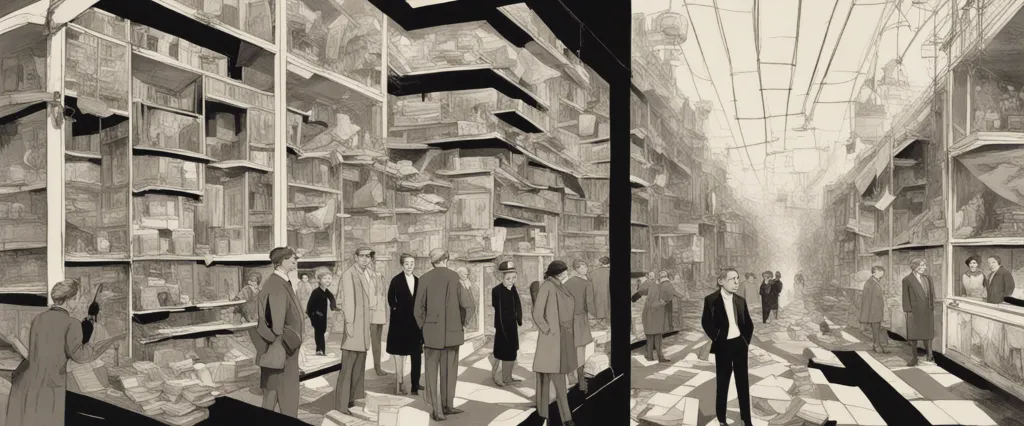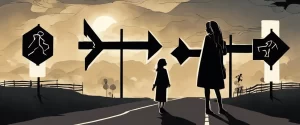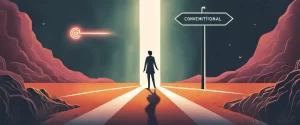——The World of Yesterday by Stefan Zweig & Many Lives Many Masters by Brian L. Weiss

Literature has the remarkable ability to transport us to diverse realms of human experience, shedding light on the complexities of existence and offering us profound insights into the human condition. In the realm of non-fiction, two captivating books have captured the attention of readers, each presenting a unique perspective on life, its intricacies, and the journey of self-discovery. Stefan Zweig’s The World of Yesterday and Brian L. Weiss’s Many Lives Many Masters delve into different realms of human consciousness, examining the essence of existence through compelling narratives. Despite varying subject matter, setting, and context, these thought-provoking works offer invaluable insights into the timeless questions that have perplexed individuals across centuries and cultures.
Synopsis of The World of Yesterday:
Step into the world before the shattering of Europe, on the brink of profound societal changes that would irrevocably shape the course of history. Stefan Zweig’s magnum opus, The World of Yesterday, published posthumously, is a poignant memoir that spans the tumultuous period from the late 19th century to the mid-20th century. Zweig, a renowned Austrian writer, takes us on an introspective journey, recounting his life experiences and providing an intimate portrait of a generation adrift amidst the disintegration of an era known for its aristocracy, cultural vibrance, and political upheaval. Zweig’s poignant reflection on the collapse of the Austro-Hungarian Empire and the subsequent rise of totalitarian regimes offers a profound insight into the demise of a bygone world.
Synopsis of Many Lives Many Masters:
Contrasting the historical upheavals witnessed in The World of Yesterday, Brian L. Weiss invites readers into a spiritual odyssey in Many Lives Many Masters. Departing from the palpable reality of the world Zweig depicts, Weiss delves into the elusive realm of past-life regression therapy. As a renowned psychiatrist, Weiss found himself captivated by a particular patient who exhibited inexplicable traits that transcended the bounds of conventional psychological understanding. By recounting the sessions where he explored the depths of her psyche, Weiss takes us through an extraordinary voyage into the world of reincarnation, spirituality, and the healing power of love.
Purpose of Comparative Study:
By bringing these two distinct literary works into conversation, this comparative study intends to explore the overlapping themes, contextual disparities, and divergent perspectives that emerge from the authors’ respective explorations of the human experience. While Zweig meticulously scrutinizes the societal and political transformations that confronted him, Weiss challenges readers to reevaluate the boundaries of knowledge and the perennial question of human identity. Through this analysis, we aim to gain a richer understanding of existential quandaries, resilience in the face of adversity, and the profound longing for answers about our individual journeys in life.
Conclusion:
The World of Yesterday by Stefan Zweig and Many Lives Many Masters by Brian L. Weiss, though distinct in their subject matter and approach, both tackle fundamental aspects of human existence. These two works provide insights into the realms of personal and societal transformation, reflecting on historical upheavals and exploring the complexities of human consciousness. While Zweig’s evocative memoir laments the loss of a bygone era, Weiss’s revelatory exploration challenges deeply entrenched beliefs, ultimately highlighting the limitless potential of the human spirit. By embarking on this comparative study, we hope to unearth the profound connections and divergences that lie within these thought-provoking literary works, shedding new light on mankind’s timeless search for meaning and self-discovery.
Brief Summary of Two Books
The World of Yesterday by Stefan Zweig
“The World of Yesterday” is an autobiographical memoir written by Austrian writer Stefan Zweig. The book offers a vivid depiction of Europe before and during the tumultuous years of World War I and II.
Zweig explores his own life experiences while painting a broader picture of a continent on the brink of transformation. He describes his privileged upbringing in Vienna, his love for literature and the arts, and his encounters with influential figures such as Sigmund Freud, Rainer Maria Rilke, and Richard Strauss.
As he delves into the cultural and intellectual climate of the time, Zweig depicts a vibrant era of high ideals, creativity, and humanism. However, with the outbreak of WWI, the optimism diminishes, and the author witnesses the disintegration of the cosmopolitan world he cherished.
Zweig’s narration becomes more somber as he recounts the rise of fascism, the increasing violence, and the persecution of Jews. With Austria’s annexation by Nazi Germany, Zweig himself becomes one of the oppressed, ultimately leading him to exile in various countries.
“The World of Yesterday” serves as a poignant testament to the loss of a world on the verge of destruction. Zweig expresses his own melancholy and nostalgia for a time when Europe was a beacon of culture, tolerance, and intellectual exchange.
Many Lives Many Masters by Brian L. Weiss
“Many Lives, Many Masters” is a groundbreaking book written by Brian L. Weiss, a renowned psychiatrist and psychotherapist. The book explores the concept of past lives and regression therapy through the experiences of Catherine, one of Weiss’s patients. Catherine, suffering from anxiety and phobias, undergoes hypnosis to uncover the root causes of her emotional and psychological issues.
During the therapy sessions, Catherine starts recalling vivid details from her past lives. Driven by curiosity and the desire to heal her patient’s wounds, Weiss delves deeper into Catherine’s past lives, discovering remarkable patterns and connections between her current and past existences. Through these regressions, Catherine gains profound insights into her soul’s journey, uncovering the reasons behind her fears and relationships.
Weiss’s skepticism gradually transforms into belief as he witnesses Catherine’s emotional and spiritual transformation. As he continues exploring past lives and incorporating spiritual elements into his therapy, Weiss highlights the life-changing impact of embracing the concept of reincarnation and the interconnectedness of souls.
“Many Lives, Many Masters” not only offers a compelling and personal account of one individual’s journey through past lives but also introduces the reader to the concept of past-life therapy. This book challenges traditional notions of life and death, encouraging readers to consider the possibility of multiple lives, spiritual growth, and the power of healing through recognizing the eternal nature of the soul.
Comparison between Two Books

Similarities in Memoirs
Both The World of Yesterday by Stefan Zweig and Many Lives Many Masters by Brian L. Weiss can be categorized as memoirs, as they provide personal accounts of the authors’ experiences and reflections.
1. Autobiographical nature: Both books center around the lives of their respective authors. Stefan Zweig’s The World of Yesterday is an autobiographical account of his own life and experiences during the tumultuous times of the early 20th century, while Brian L. Weiss’s Many Lives Many Masters is a memoir that documents his journey as a prominent psychiatrist exploring past life regression and spiritual healing.
2. Reflection on personal growth and transformation: Both memoirs delve into the personal growth and transformation of the authors. Zweig’s The World of Yesterday reflects on the profound changes and challenges he faced as he witnessed the disintegration of the Austro-Hungarian Empire and the rise of fascism and war. Similarly, Weiss’s Many Lives Many Masters recounts his transformative journey as he explores past life therapy and the spiritual realm, leading him to reassess his beliefs and therapeutic approach.
3. Historical and cultural contexts: While differing in subject matter, both memoirs provide insights into the historical and cultural contexts in which the authors lived. Zweig’s memoir captures the vibrant intellectual and cultural atmosphere of Vienna in the late 19th and early 20th centuries, while also addressing the rise of nationalism and the devastating impact of two World Wars. Weiss’s memoir, on the other hand, offers glimpses into the world of psychiatry and the exploration of past life therapy, shedding light on spiritual beliefs and alternative forms of healing.
4. Personal anecdotes and encounters: Both books are filled with vivid personal anecdotes and encounters. Zweig’s memoir includes encounters with influential figures such as Sigmund Freud, Rainer Maria Rilke, and Richard Strauss, among others, providing intimate glimpses into their personalities and interactions. Weiss’s memoir recounts his sessions with patients undergoing past life therapy, presenting their stories and the insights gained through these experiences.
5. Reflection on the human condition: Both memoirs touch on deeper philosophical and existential themes, reflecting on the human condition. Zweig’s The World of Yesterday contemplates the fragility of civilization, the destructive nature of nationalism, and the ceaseless flux of human affairs. Weiss’s Many Lives Many Masters explores the idea of reincarnation, the existence of the soul, and the potential for personal and spiritual growth across different lifetimes.
In summary, both The World of Yesterday by Stefan Zweig and Many Lives Many Masters by Brian L. Weiss share similarities as memoirs, including their autobiographical nature, reflection on personal growth and transformation, exploration of historical and cultural contexts, inclusion of personal anecdotes and encounters, and contemplation of the human condition.
Divergences in Memoirs
The World of Yesterday by Stefan Zweig and Many Lives Many Masters by Brian L. Weiss are two memoirs that delve into the lives and experiences of their respective authors. While both books provide glimpses into the personal journeys of the writers, they diverge significantly in terms of their subject matter and themes.
The World of Yesterday is an autobiographical work by Stefan Zweig, an Austrian writer. It serves as a memoir of a bygone era, depicting the author’s experiences of living through the tumultuous early 20th century in Europe. Zweig delves into his own life, detailing his literary pursuits, travels, and encounters with various influential figures of his time, such as Sigmund Freud and Richard Strauss. The book explores themes of cultural and intellectual decay, the rise of nationalism and fascism, and the loss of a once-thriving European civilization. It is a poignant reflection on the profound changes that occurred during Zweig’s lifetime and the fading of an entire world.
Many Lives Many Masters, on the other hand, is a memoir by Brian L. Weiss, an American psychiatrist. This book takes a departure from traditional memoirs as Weiss shares his experience with past-life regression therapy through the case study of a patient named Catherine. Weiss chronicles his journey from skepticism to belief as he witnesses Catherine’s seemingly inexplicable ability to recall past lives during their therapy sessions. The memoir delves into the concept of reincarnation and explores themes of spirituality, healing, and personal growth. It offers a unique insight into the human psyche and the nature of consciousness, challenging conventional perceptions of reality.
In terms of divergence related to memoirs, The World of Yesterday provides a reflective account of Stefan Zweig’s life amid significant historical events. It explores the author’s personal experiences, emotions, and intellectual pursuits, while offering valuable social and historical commentary. Meanwhile, Many Lives Many Masters focuses on a specific therapeutic technique and the encounters between the author and his patient. It emphasizes the transformative nature of the therapy and the exploration of spirituality rather than providing a wider historical or social context.
In summary, The World of Yesterday is a memoir that reflects on the author’s experiences and observations within a specific historical period, while Many Lives Many Masters centers around a specific therapeutic encounter and explores the concept of reincarnation and spiritual growth. Despite both being memoirs, the divergence lies in their subject matter, themes, and the level of historical and socio-cultural exploration presented within each book.

Conclusion
Both The World of Yesterday by Stefan Zweig and Many Lives Many Masters by Brian L. Weiss are highly regarded books in their respective genres. However, the selection ultimately depends on personal preferences and interests.
The World of Yesterday is a powerful autobiographical memoir by Stefan Zweig, an acclaimed Austrian writer, which provides a firsthand account of the tumultuous times he lived through, including the rise of Nazism in Europe. It offers a unique perspective on European culture, history, and the devastating impact of political events on individuals. The book is loved for its elegant prose, vivid descriptions, and thought-provoking reflections on the human condition during times of crisis.
On the other hand, Many Lives Many Masters by Brian L. Weiss belongs to the genre of spirituality and self-help. It explores themes of reincarnation and past-life regression based on the author’s experiences as a psychiatrist. Weiss’s book seeks to provide insights into spiritual growth, healing, and the connection between past lives and present problems. Many readers find the book uplifting, thought-provoking, and comforting.
Ultimately, the choice between The World of Yesterday and Many Lives Many Masters depends on the reader’s interests and what they hope to gain from reading. If you’re interested in history, memoirs, and understanding the impact of political events on individuals, The World of Yesterday may be more worthy of reading. However, if you’re drawn towards spiritual and metaphysical concepts, Many Lives Many Masters could be the book for you.



